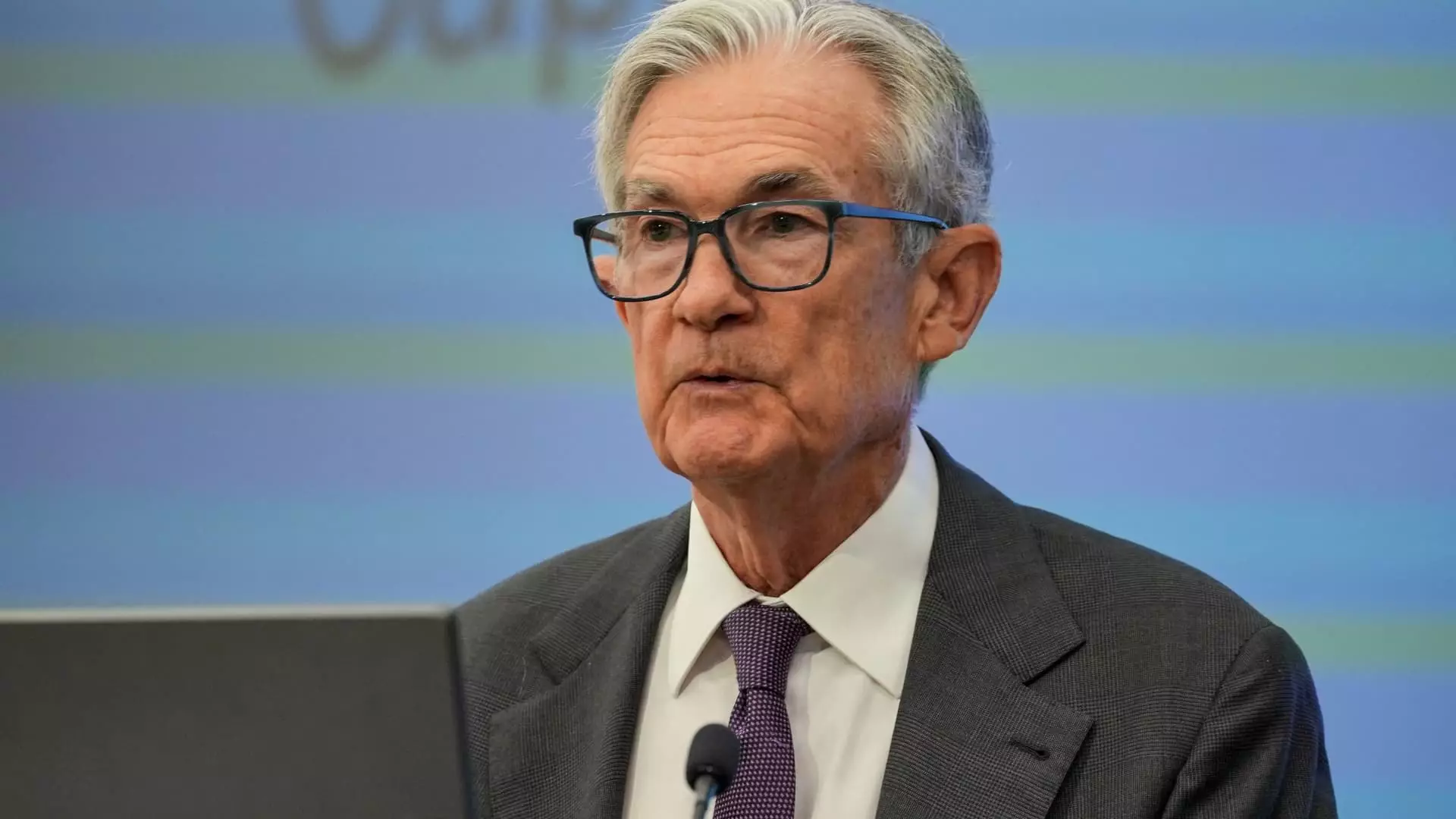As Jerome Powell prepares to deliver what is likely his last keynote at the Federal Reserve’s renowned annual symposium in Jackson Hole, Wyoming, the atmosphere surrounding this event is charged with anticipation and underlying tension. This gathering, once a forum for academic discourse and policy introspection, has transformed into a high-stakes stage where the future of U.S. monetary policy and the independence of the Federal Reserve itself hang in the balance.
Unlike typical speeches that focus solely on economic data and forecasts, Powell’s address this year is loaded with political undertones and urgent policy questions. He stands at a crossroads, with the eyes of markets, politicians, and economists scrutinizing every word for signals about the Fed’s next moves. Given the tumultuous economic environment—marked by lingering inflation, uncertain growth prospects, and intense political pressure—this speech will not be merely an update; it will be a pivotal statement of intent and resilience.
Political Pressures and the Responsibility of a Steadfast Central Banker
Powell’s tenure has overseen a turbulent political landscape where the independence of the Federal Reserve has been under relentless assault. President Trump’s outspoken criticism, demanding lower interest rates and questioning the Fed’s motives, exemplified the growing interference from politics in monetary policy. The White House’s attacks extended beyond mere rhetoric, targeting not only policy decisions but also operational aspects of the Fed, like its infrastructure projects and personnel.
This environment presents a deep challenge for Powell: to sustain the institution’s credibility and independence while navigating an environment in which political forces seem increasingly eager to influence monetary policy outcomes. His keynote speech provides a critical opportunity to reaffirm the Fed’s autonomy publicly. While avoiding direct confrontations or overt criticisms, Powell might subtly emphasize the importance of independent, data-driven policymaking—resisting the urge to capitulate to political pressures, even when such pressures threaten to skew the institution’s credibility.
The question is whether Powell will be able to maintain this delicate balance once he’s no longer at the helm. His tone and framing during this speech may very well serve as a legacy statement, emphasizing the importance of avoiding politicization and defending the core tenets of central bank independence under siege.
The Economic Outlook: Balancing Patience and Preemption
Beyond political considerations, the substance of Powell’s speech will revolve around the economic outlook and how the Fed intends to navigate the current landscape. A primary focus will be the likelihood of a September interest rate cut. Market expectations are leaning towards a supportive stance from Powell, with many investors anticipating hints of policy easing ahead.
However, the Fed is meticulously weighing conflicting signals: a labor market that some describe as “solid,” despite mixed job growth numbers, versus persistent inflationary pressures. Many policymakers have expressed concerns about inflation becoming entrenched, which complicates the Fed’s narrative and strategy. The challenge lies in communicating a clear, confident stance that neither prematurely signals rate cuts nor appears too rigid in the face of evolving data.
Powell’s previous speeches at Jackson Hole have demonstrated a pattern of signaling significant policy shifts, moving from aggressive rate hikes to dovish pauses, and reevaluating inflation perspectives. This year, he might subtly communicate that while the Fed remains cautious, it is prepared to act decisively if inflation proves stubborn. His words could recalibrate market expectations, emphasizing flexibility and readiness to adjust policy as new data emerges.
The Reconfigured Framework: Revisiting Inflation Targets
One of the most consequential aspects of Powell’s speech will likely concern the Fed’s long-term inflation strategy. Since adopting the “flexible average inflation targeting” framework in 2020, the Fed has allowed inflation to overshoot its 2% target, viewing this as necessary to support employment and economic stability. Yet, this approach has led to inflation reaching levels unseen in over four decades, prompting calls to revisit and possibly revert to pre-pandemic policy baselines.
Market watchers and economists are keenly awaiting how Powell will address this issue. A clear signal that the Fed intends to refine its approach to inflation—perhaps by re-establishing preemptive measures to keep inflation expectations anchored—would mark a significant shift. It could also serve to restore credibility, especially in the face of rising concerns about inflation expectations becoming de-anchored once more.
Such a policy reorientation would not only influence the trajectory of future rate hikes but also send a message about the central bank’s willingness to reclaim its role as a proactive inflation fighter rather than a reactive entity. The debate over whether the Fed inadvertently fueled inflation through its ambitious framework change is high-stakes, with implications far beyond the financial markets.
The Broader Implications: Markets, Politics, and the Fed’s Future
The stakes of Powell’s speech extend beyond the immediate economic data—it reflects the fundamental struggle to preserve the integrity and independence of the central bank amid partisan pressures. As the political climate intensifies, Powell’s wording could either fortify the Fed’s standing as an independent institution or herald a further erosion of its credibility if perceived as too influenced by political tides.
Markets are poised for a delicate dance. Investors seek certainty but remain wary of over-interpretation. A speech that balances subtle hints of future policy moves with reassuring words about the Fed’s commitment to its mandate could strengthen market stability. Conversely, any perceived capitulation or ambiguity may lead to increased volatility.
Ultimately, Powell’s Jackson Hole address will be remembered not merely for its economic content, but for how it encapsulates the central bank’s struggle to remain an unbiased guardian of economic stability in an era fraught with political polarization and economic uncertainty. The tone he sets and the signals he sends could affirm or undermine the very legitimacy of the Federal Reserve’s independence in the critical years ahead.

